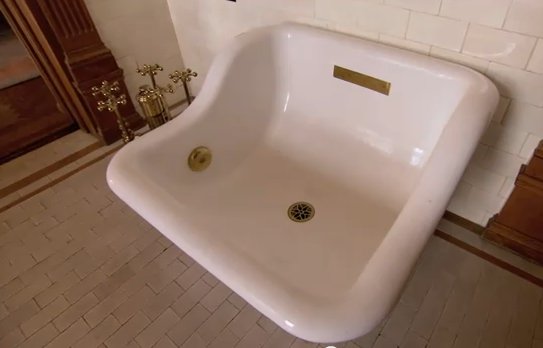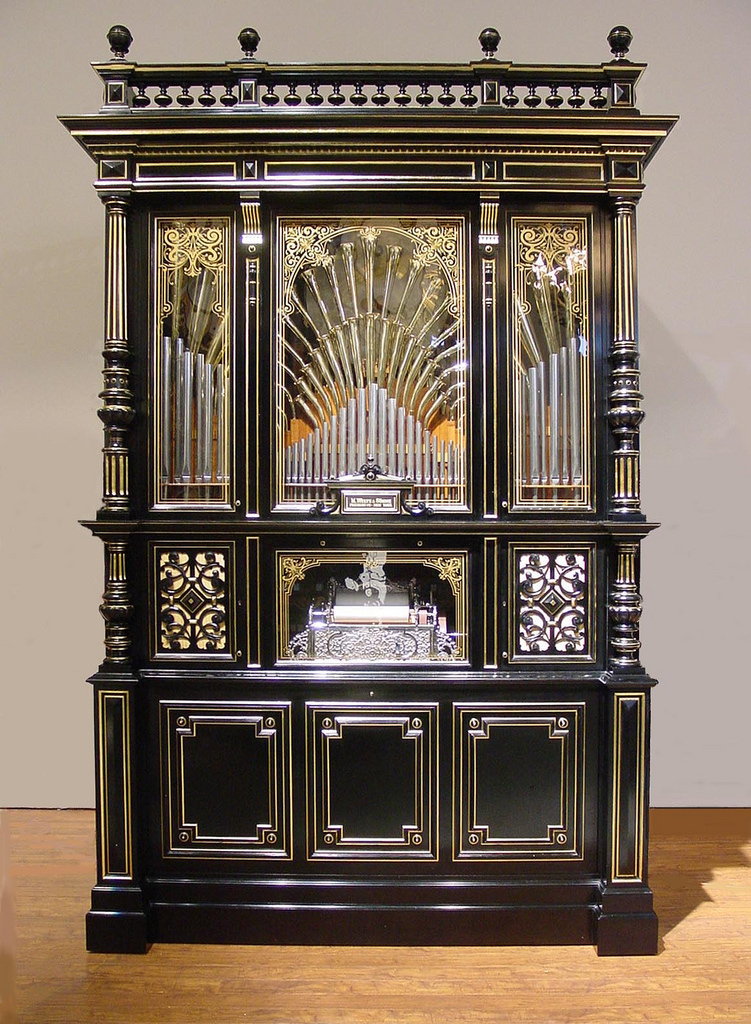Useful Vocabulary:
Henry Clay Frick's business life
Anarchy (n): society in which there is no government
Anarchist (n): someone who advocates for anarchy
Assassinate (v): kill suddenly, esp. politically prominent person; murder premeditatedly
Industrialist (n): someone who owns or manages an industrial company (dictionary.com)
Industrial (adj): relating to industry
Industry (n): manufacturing, business activity
Strike (n): stop of work as way to make employer give in to workers' demands, or in protest against conditions set by employer (dictionary.com)
Union (n): organization of workers who share common goal of improving working conditions
Art/Decoration
Art Nouveau (n): style of art/architecture in late 1800s/early 1900s with curvy lines and natural forms
Eclectic (adj): coming from many different sources
Exquisite (adj): extraordinarily fine or admirable
Landscape (n): picture showing nature or rural scenery
Motif (n): recurring subject, theme, idea in artistic work
Portrait (n): painting, drawing, or photograph of a person
Romanesque (adj): style of art/architecture of Rome in 9th-12th century, characterized by round arches, narrow openings
Renaissance (adj): relating to European Renaissance 14th-17th centuries (revival of art, literature, learning)
Ornate (adj): elaborately decorated, often excessively (dictionary.com)
Things in the House
Bidet (n): low basin for washing genital and perineal area
 Annunciator (n): system for calling household workers o particular rooms in the house
Orchestrion (n): mechanical musical instrument, somewhat like an organ, made to sound like an orchestra
Annunciator (n): system for calling household workers o particular rooms in the house
Orchestrion (n): mechanical musical instrument, somewhat like an organ, made to sound like an orchestra

Other
Affluent (adj): having an excessive of wealth, property, material objects, etc
Gilded Age (n): period in America at end of 1800s, expanding economy and growth of industry, wealthy class very influential in government
Mansion (n): large, impressive residence
Poker (n): card game played by 2+ players, players bet on value of cards in their hand
Chambermaid (n): girl who cleans and tidies bathrooms and bedrooms
Governess (n): woman who takes charge of child's upbringing, education, etc (dictionary.com)
Chauffeur (n): person who drives car or limousine for owner
|
|
Questions to Ask:
Clayton, Frick, and His Family
Why did husband and wife sleep in separate beds?
How many servants did the family have? What roles did they have and what was their relationship with the family?
Why was Childs's room on the same floor as the servants and guests?
Who would stay overnight with the Frick family?
Which guests were accommodated in the guest rooms on the 2nd floor, and which would be on the 3rd floor?
Why was aluminum used underneath the ceiling paint in the parlor Clayton?
Frick's Business Life
How did Henry Clay Frick get his money to start his business?
What caused the Homestead Strike? Were other steel companies suffering?
What happened in the assassination attempt of Henry Clay Frick?
What was Henry Clay Frick's relationship with Andrew Carnegie? Did it extend beyond business to their social life?
|

